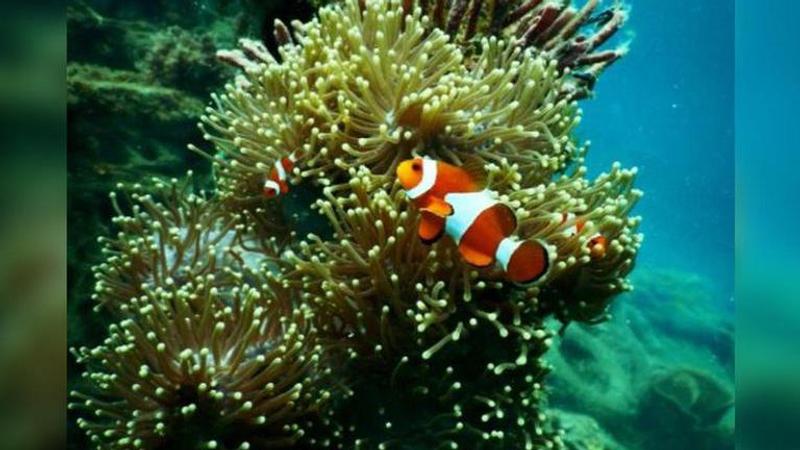Published 17:08 IST, August 14th 2021
Coral reefs can survive heat with bacterial help, claims study
Coral reef: Researchers from KAUST have claimed that the lifeline of corals can be increased by treating them with a probiotic cocktail of bacteria

Amid the gruelling concerns of coral extinction, researchers from King Abdullah University of Science and Technology (KAUST) have found that the lifeline of corals can be increased by treating them with a probiotic cocktail of bacteria. Researchers have revealed that coral can be recovered from high sea temperatures by implementing this approach before a heatwave approaches. KAUST researchers have revealed that due to global warming, the temperature of the oceans is increasing, disrupting corals and their symbiotic photosynthetic algae, and causing corals to bleach, and eventually leading to their deaths in some cases.
The stress tolerance ability of a coral reef can be increased by manipulating the coral microbiome and by using beneficial microorganisms for corals or BMC. In the most recent development, researchers experimented with six bacterial strains, which were isolated from the coral Mussismilia hispida, and used them to determine experimental cultures of M hispida. As part of the process, the researchers increased the temperature to 30 degrees Celsius for 10 days and later dropped it to 26 degrees Celcius. This experiment was carried out to examine the health of the corals and microbial diversity and metabolic parameters in treatments with and without probiotics or heat stress were also observed.
What did researchers observe?
At the beginning of the experiment, the researchers observed that there was no difference in corals. As corals reef with and without probiotics reacted similarly at the peak temperature and both bleached. The lead author of the study, Erika Santoro, said, "At that point in the experiment, I thought, well, OK, we’re seeing similar responses between the treatments". She further said, "But then, after we dropped the temperature, we observed a plot twist from the group that we treated with probiotic BMC. That was a really nice surprise".
During the experiment, it was recorded that the coral reef showed significant resistance after the heat stress event, which enhanced their survival from 60% to 100%. Notably, the researchers said the BMC is helping the holobiont to mitigate the effects of "post-heat stress disorder" and is restructuring the physiological and metabolic profiles. Furthermore, the researchers observed that during the recovery period, BMC-treated corals had a lower number of genes involved in apoptosis and cellular building and enhanced results of thermal stress protection genes. The BMC treatment also changed the molecular structure of the microbiome by incorporating some of the beneficial bacteria as well as other changes in the population structure.
BMCs provide a valuable tool to cope with the consequences of climate change, but Santoro emphasizes that it is no silver bullet. "Using a probiotic is an effective tool to help corals deal with heat stress, but we also have to consider other interventions," she says, such as "protection and conservation, everyone being more aware and, most importantly, decreasing greenhouse gas emissions and trying to change our resource use. Corals will need all of these interventions, "she added.
IMAGE: ANI
(With ANI Inputs)
Updated 17:08 IST, August 14th 2021



